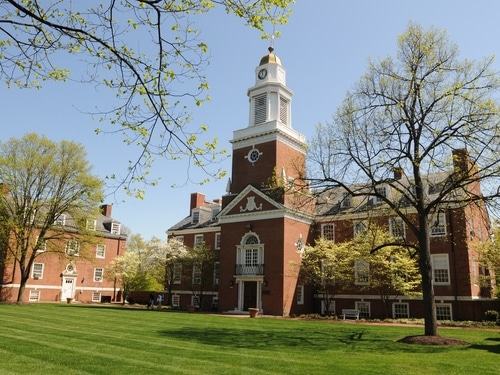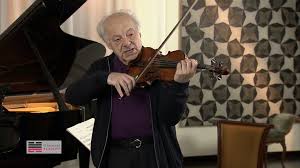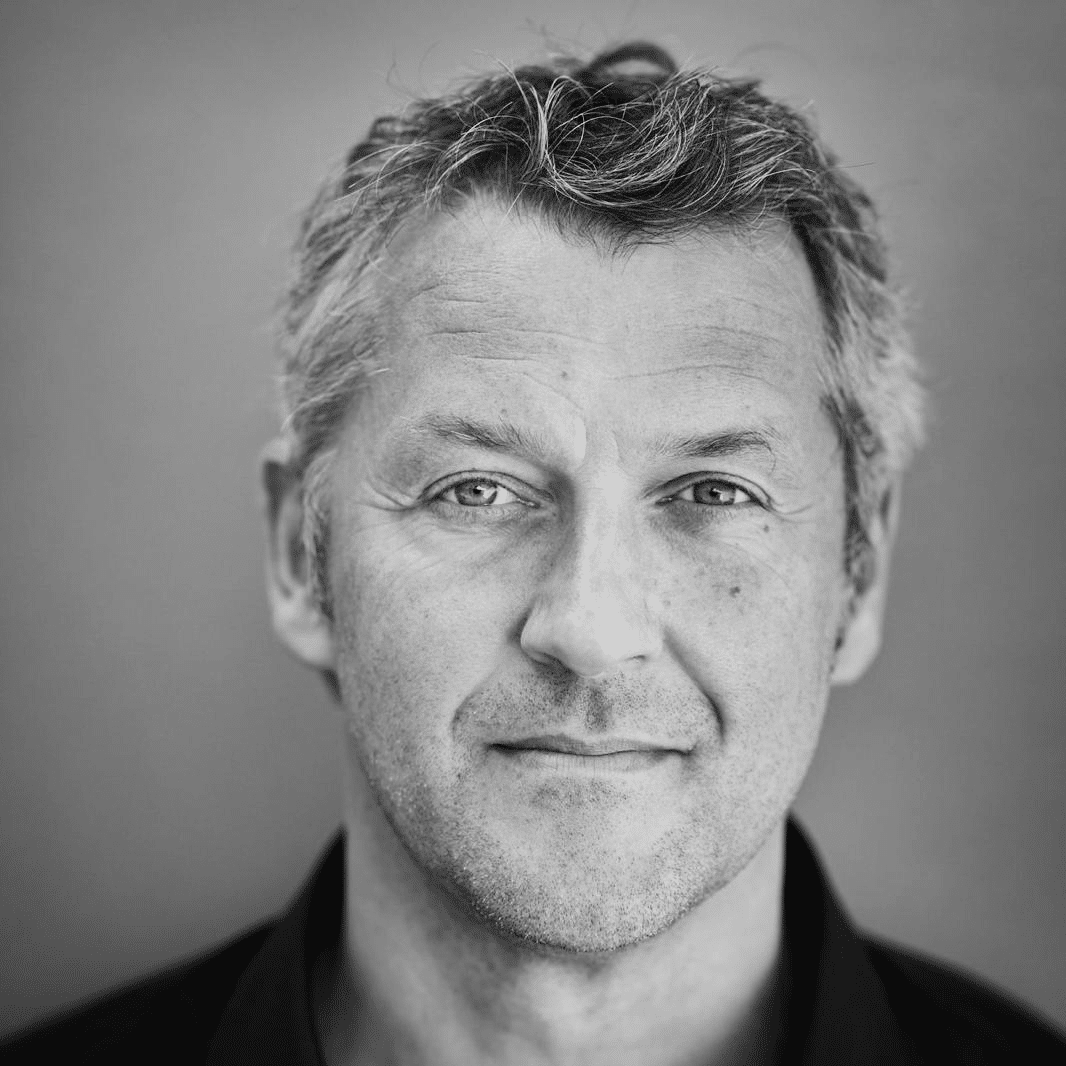Dear Alma, Is my elite music PhD worth anything?
UncategorizedDear Alma,
I am getting a doctoral degree in a program which likes to market itself as a leading one. We have everything: excellent applied faculty, great funding, working facilities – all in a pretty affordable city, with a world-class orchestra, a major conservatory, and plenty of gigging and teaching opportunities outside of school.
The problem is, the school’s priorities don’t align with mine. Our musicology department is particularly noteworthy, and so we – performance students – are forced to take high level academic courses and held up to very high standards on that end. And here’s my struggle: I just don’t want to be doing endless reading assignments about stuff I don’t really care about. I’ve been in grad school for way too long – I’ve done plenty of that. It seems we spend way too much time talking about scholars and what they think, and not nearly enough time talking about, or even, God forbid, making music. Other students share this sentiment.
Is it wrong to expect a performance emphasis on a performance degree? Am I just a crybaby?
Yours,
Lost in Pages
Dear Lost in Pages,
Ah yes. The endless tasks of an advanced degree. It often seems like they throw these extremely time-consuming, somewhat unrelated classes and duties at the doctoral student just to see if they can get you to throw in the towel. And the difficulty and unrelatedness increases as the end of the degree becomes within sight.
My advice? Don’t think about it. Just do it. You are almost there. Every person I have ever spoken to feels exactly the same. Just grit your teeth and finish. Part of the frustration lies in the fact that you are older, and wiser, and you can see how meaningless the classes are to your chosen degree – in this case, performance. When we were younger, it was easier for us to do the tasks, but now you are impatient, wisened, and ready to be done already.
The purpose of a DMA or PHD in music is to obtain a teaching degree. If you wanted just a performance boost, there are other ways to achieve this, with lessons or an artist diploma, summer masterclasses etc. Your future with this degree will put you in line for teaching position. One in which your performance opportunities will most likely be scant, unfortunately.
WARNING!!! UNCOMFORTABLE TRUTH TIME!!!!
Lost in Pages, with this degree, you are heading towards a low-middle level teaching position at a school with a vague music department. You will be teaching beginners to intermediate level players, and most of your time will be taken up by teaching a variety of classroom topics, as well as your instrument to education majors. You will spend your time doing exactly what you feel like you are doing now. Wasting your time on things that hold no interest to you. This is why the degree includes a healthy portion of non-performance duties. This is what your future institution will need from you. Scholarly and herd management. Not performance, which is misleading in the name of your degree.
The better the school, the less they need a DMA or PHD. They are looking for a seasoned performer who has toured internationally and won solo competitions. For high level individual teaching, they look for a high level performer, not an advanced degree (for the most part).
So, Lost in the Pages, buckle down – you are almost at the finish line. Get there, and your options will open, whether performance-based or education-based.
Questions for Alma? Please put them in the comments section or send to DearAlmaQuery@gmail.com






That is if you’re lucky to make it beyond an adjunct position and then not depressed from having to work with people you hate who also seem to hate you and you have to see every day, and will for the rest of your life if you make tenure.
I no longer understand what the motive for a music degree is anymore. The financial cost plus time doesn’t seem worth it.
It seems never a waste to spend time on thinking ABOUT music instead of playing it.
Thinking about it as well as, or while, playing it is the best use of time.
Anyone holding a Ph.D in any subject is required to undertake a pretty comprehensive study in their field, not just in their specialty. I knew before I entered university in English that my post-graduate work would be on the Victorians, yet I had to study Anglo-Saxon, Chaucer in the original, linguistics, literature of every century more or less in order, as well as American literature, and classics. To get into the Ph. D programme, despite having French (5 years at school and 6 university courses), Latin and Greek, I had to provide another modern language.
A young friend has just completed Ph.D in Canadian literature without ever reading, let alone studying, any Shakespeare, because, as she put it, “I don’t like drama.” I consider her degree second rate, and if I were engaging teachers I would look very askance at her degree or any from her department, with which I am familiar not least because the outside examiners failed so many of their Ph.D candidates.
If the candidate who wrote in hates it so much, she should not be going for a Ph.D. She should be out there, doing the audition rounds, accepting some of these gigs that so abound in what sounds like a paradise of a place, and earning her keep till she finds a performance job with the teaching that is apparently so available.
But this musical heaven on earth may be a bit competitive — turnover is not usually high in world-class orchestras, and extra musicians can’t count on many gigs in a year. It may be that the university has an orchestra and other groups that provide a steady flow of satisfying performing experiences, and they may also be places where the performances are reviewed and maybe scouted by talent-hunters.
Despite performance degrees and art degrees focused on producing rather than studying art, universities are first and foremost academic institutions and academic standards must be maintained. Despite the increasing emphasis on STEM and the cutbacks to the humanities, universities are not meant to be training facilities — there are colleges for that.
Music and art students are almost like the prolific football (and other athletic) “scholars” in the US, where the jocks resent having to maintain the most minimal grades or attendance at classes in order to retain the “scholarships.” I was at an American university for a few days that included the weekend of hospitality (i.e. inducements) to footballers applying for these scholarships the following year, and to say they were inarticulate was to make the Scottish word “glaikit” seem like genius. Yet they would take up places therefore denied to people who genuinely wanted to study.
Your advice is right — put up or shut up.
V.Lind makes some good points, but his/her characterisation of the PhD degree is very USA-centric, in that a PhD from an American university entails not only a thesis, but also a curriculum of various papers/modules/classes and even teaching work.
Conversely, here in the UK, the PhD degree is awarded almost solely on the basis of the thesis itself (although it is common for PhD programmes in the UK to impose compulsory attendance at generic training courses in topics such as research ethics &c., and to impose periodic progress reviews to ensure the candidate is making reasonable and diligent progress with the thesis), the understanding being that broader scholarship/knowledge in the field will:
a) have been attained already in Bachelor’s and Master’s degrees (nowadays in the UK, it is pretty unusual to get accepted onto a PhD programme without either a Master’s degree — although it need not be in exactly the same discipline — or substantial evidence of professional experience demonstrating readiness for doctoral research in the field); and
b) continue be cultivated where expedient or necessary in not-for-credit seminars/sessions undertaken on an /ad hoc/ basis during the enrolment for PhD research.
I’ve never studied in an American university and have no idea how their programmes work. Most of the studies I referred to were of undergraduate preparation for admission to a Ph.D programme, though here in Canada there are a few courses as part of the doctoral degree in my field. After which all is the thesis, with the occasional sessions with the thesis director to discuss progress.
A Master’s degree is a necessary preliminary here, but teaching is offered as an opportunity for grad students to earn, not as a requirement. I was lucky as an undergraduate, only once having to endure a course conducted by a grad student, and only in a required minor, in history. He was appalling — tyrannical and arrogant, probably indications of his method of overcoming inexperience and nerves.
Just FYI, is is “she,” but I appreciate your use of “he/she” as opposed to the illiterate “they” often chosen when someone is in doubt.
My apologies for misinterpreting your comment; I had assumed, erroneously, that you were referring to non-thesis work in PhD programmes that have such work since that was the context of the OP’s query to Alma, and you finished with an admonition to the OP to “put up or shut up”.
The musicology faculty is scared shitless that the university is going to eliminate their department today rather than tomorrow, that’s why they are imposing their courses on performance students, to artificially inflate the numbers, if they could force physics and law students to take musicology they would, otherwise how can musicology justify its existence when there is 1 grad student to 3 faculty members, and 1/3 of those grad students never finish the program, 1/3 never get a job, and 1/3 wind up addicted to opioids?
Exactly. It’s a business.
Alma is right on! You probably should finish if you’re close to finishing — it would be a shame not to at this point. And yes, a DMA or Ph.D is usually not the path towards a teaching position in a world-class institution focused on performance, as the level of performing in institutions requiring this kind of degree for their faculty is not likely to be very inspiring.
However, I also think you need to be realistic about your strengths and weaknesses. Do you realistically envision yourself as competitive for the grueling orchestra audition circuit? You might be, but only you know the answer. It has become incredibly difficult in the past 20 years. It’s always akin to a lottery — you have to play well, very well, but even then that’s no guarantee you’re going to get the job. It is also not necessarily a fair process. I know incredible performers who don’t make it past the first round at important auditions, and milquetoast players who actually get in. Perhaps that’s actually an argument for trying anyway. But it does remain an incredibly challenging process that requires intense psychological stamina.
Evaluating any job is truly a question of priorities. Pay, quality of life in the city where your job is located, work culture in your particular institution, and amount of free time left are in my opinion the most important aspects. One can be very fulfilled in a mid-level teaching job in a wonderful setting and miserable in a world-class orchestra lacking in collegiality — as they often do. A teaching job that leaves you enough free time may even allow you to develop a Plan B, which I personally think has become almost a requirement for aspiring musicians nowadays.
To say that the market is saturated would be a mild understatement. There simply aren’t even jobs for all concerned, and that’s an important factor to take into account and remain realistic about. There’s just too much competition, too many people who play at such a high level that it often becomes impossible to differentiate between them.
Another option is to create your own job opportunities as a performer, most likely as part of a group, but that requires entrepreneurial skills and, as everything else in life (including either a teaching or orchestra position) a certain amount of sheer luck.
Completely agree here. You want a performance career, learn how to perform and dont waste time on an advanced degree. Especially don’t study anywhere where the only qualification for teaching is the degree and not real performance experience. If this standard were applied, most schools would not even have a music performance department. Auditions are blind all the way in most places and the only thing that matters is how well you play.
Good advice. Just finish up and get what you can put of it. Your options will open in interesting ways.
With all due respect, could Alma’s advice columns be a little less US-centric?
Anthony – what would your advice be, from a different perspective? Is it any different anywhere? In my experience, this answer is universal. No matter where the music school is located, the same hiring priorities exist.
Anthony – where are you writing from, and how is it different there? Auditions for playing positions are the same everywhere. Depends on how you play. Auditions for teaching positions are also the same. It would be nice to hear how it is different where you live, and where it is that is so different.
I went to grad school for a masters because I felt like I wasn’t yet ready for auditions after my bachelor’s degree, but I knew I didn’t want or need a PhD because I just wanted to perform, not teach.
Music performance degrees are different because you do need instruction and experience, but in the end it really depends on how well you play.
Your degree only matters in who you studied with and how well thought of your school might be, to get you into an audition, but in the end it’s all in how well you can play.
I largely agree with Alma.
As for graduate study, it’s on us to make it meaningful, not unlike life itself.
A PhD is basically a licence to conduct research. It is not a stamp collecting trophy.
That isn’t to say it isn’t valuable for a performing musician, there are many performers (and composers) whose work is informed and shaped by their research.
However I agree with Alma. There are few doctoral students (in any subject) who don’t go through the self-doubts you are having – basically a PhD is hard. Work through that and complete the job, and then it is up to you to make your degree experience shape your career in a positive way.
I’m a very successful professional musician in a huge city. I have a BA from a C-list school. Even that was a waste of time. I tell young performers – move to NYC, Paris, London and study privately with the best of the best (bc they are only teaching at 3 or 4 universities in the world, which most probably can’t afford). Enter competitions, perform professionally, be an usher at the Phil, bust your ass and make your way. If it doesn’t work out, at least you’re not saddled with $90,000 in debt. Academia is frankly a soul-killing rip-off if you’re trying to have a performance career. Academia teaches you to Academia. That’s it.
Spot on.
The scarcity of performing jobs has made enrollment swell in graduate music programs. Absent employment, students can receive generous scholarships for tuition and more. Earning the PhD degree is of use only if you want a university position, equally scarce. Orchestra auditions do not count degrees. (I won one as a college freshman.) Some graduate degrees are geared to performance; PhDs are academically oriented. Applicants should choose wisely. Once enrolled, complete the coursework and thesis since credits do not always transfer.
I’d like to know how close the correspondent is to finishing her doctorate. In general, however, humanities grad programs are oriented to waste the maximum amount of students’ time (and money, if possible). Get out!
Shouldn’t “Lost in Pages” have checked the course requirements before enrolling? If he or she wanted to avoid musicology, there are plenty of other schools or conservatories where such requirements are minimal. In any case, musicians with a good understand of the theoretical/historical/social aspects of the music they are playing are generally, in my view, more interesting as performers, solo or chamber of orchestral.
No it isn’t
I sympathize with the student. A higher degree does not necessarily qualify one for what that person wants to do, or is actually qualified to do. I earned an MFA in Visual Art, which involved courses in painting, drawing, printmaking, art history, etc. It was a well-rounded education which took 3 years full time, year round to accomplish.
The MFA for an artist, which is all I really wanted to be, qualified me to teach in a small college or university, but it actually was not the equivalent of a PhD, in spite of the promise that it was—in other words, it was supposed to provide the same opportunities and respect in the educational community. In fact, an MFA does not qualifies one for what one thinks. It represents an education with benefits of a personal nature: broad knowledge which leads to deeper thinking about art, but that does not impress the general public, because it does not come with a title. Even if it did, as with a musician, did the great performers and artists of history have advanced degrees, or any degrees at all?
Where would Picasso or Milstein be, today, if they didn’t have a PhD?
Universities are great institutions which are a cornocopia of ideas which the student may not have encountered, which will stretch him, intellectually. One should enter such an institution with that goal in mind, not as a training academy for a skill, alone. Talent is worth more and will always have its say in the wider world. One can’t say “no” to Picasso or Milstein when they perform their art.
The purpose of a doctorate is to provide the education and opportunity to show that the student is capable of performing original research. If your plans for the future are not directed to that, you are wasting your time and money.
I don’t know if you specified that you are doing a PhD in performance, but I think that’s the problem. You should’ve entered a program that awards a DMA or DM. There will be less academic coursework (of course, still some) than in those programs that end with a PhD.
You may be in too deep to transfer, but a friend of mine transferred from a PhD in an academic subject to a DMA in her instrument at the same university and wasn’t thrown too far off her academic course. She now teaches mostly her instrument, with an academic class here and there as needed, and she enjoys that.
I’ll add that this sounds a lot like you may be at Case Western (a school I know somewhat well), which means you may not be able to switch to a DMA, nor may you want to cross-campus transfer to CIM given their current situation. If you are early in your PhD, I would start auditioning for DMA and AD programs with relatively light coursework requirements. If you don’t want to move that far, look at Ohio State. Michigan may be more academic than you want.
I’m curious as to why you used a picture of the now nearly abandoned (Thanks to the scandal-ridden Rider University), yet still beautiful campus of Westminster Choir College attached to this article? Is the writer a student at Rider? I doubt it.